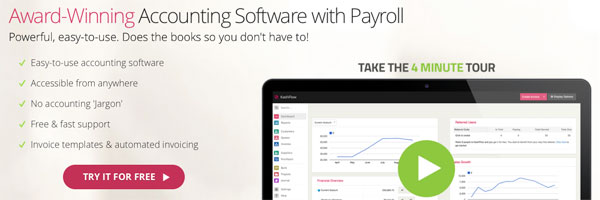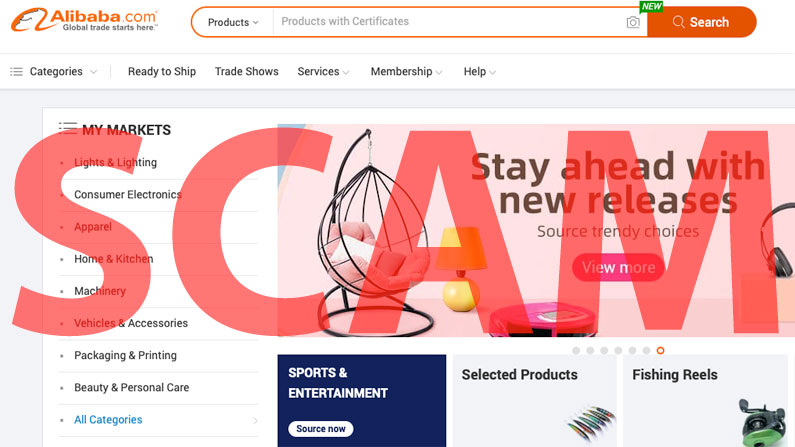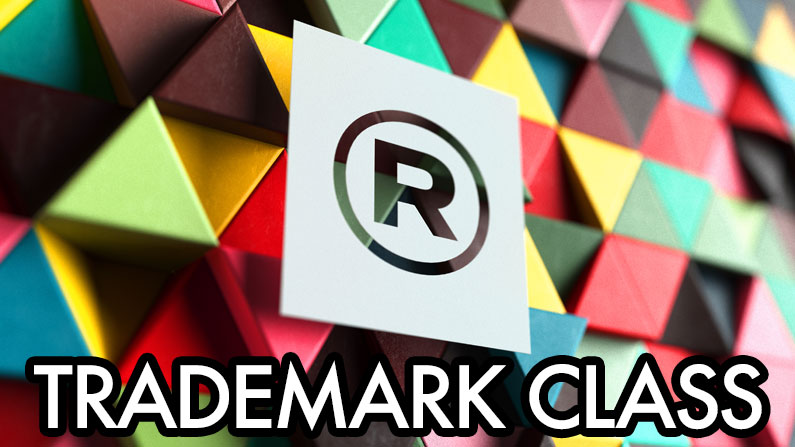 Today’s topic, accounting software for eBay/eCommerce sellers, is something that I’ve put off writing about for a while.
Today’s topic, accounting software for eBay/eCommerce sellers, is something that I’ve put off writing about for a while.
Why? Well the main reason is that I personally outsource ALL of my accounting to a professional accounting company.
After all, I always preach about outsourcing and hiring a professional who will do the job better than you, and this couldn’t be more true than with accounting, especially when you consider the number of different businesses that I own and operate.
But for small business owners and sole traders, who simply need to keep track of everything for their own sake and to help with filling in your basic end of year self assessment, this is not 100% necessary and you can definitely get by using some of the great online tools that are now available.
So I’ve finally decided to tackle this subject, as I get an insane amount of questions about it, and even if you just use this as a starting point in your own research, that’s still good enough.
What Are The Options?
To put it simply, your first real choice is whether you want to go down the manual route and record everything yourself (using Excel or simply good old pen and paper!) OR if you want to invest in accounting software, which will help you record and monitor your business’ cash flow, profit and loss, invoices, tax liability and even VAT (with some of the more advanced options).
With very simple eBay businesses (where all your sales come from eBay/PayPal and your expenses are limited to eBay fees, PayPal fees, postage and of course buying stock) then the manual method is perfectly viable.
There are a lot of Excel spreadsheets that you can find online for this or to keep things really easy – you can simply download transactions from PayPal and just manually add expenses.
The benefit to doing it like this is of course the little to no cost and overall simplicity of the whole process, after all, the last thing you want is to have to learn how to use complicated software when it isn’t at all needed for your business and circumstances.
The downsides are that it isn’t an ideal system when you have multiple selling channels or your accounts start to get more complicated and varied. And also, as you grow it can be quite time consuming (depending on the level of automation built in to the Excel spreadsheet you’re using).
To put it simply, this method suffers as you grow your business and isn’t 100% scalable.
What If I Want to Go Down the Software Route?
If you decide that you’d rather use software, because your business is too big/complicated, or if you’re not very proficient with Excel etc. (for whatever reason really),then you’re left with two major options for the software: cloud-based or desktop.
There isn’t a huge difference in the actual functionality or capability, but cloud-based systems are of course used online (you will need to log in to the site whenever you want to use it) whereas with desktop software, you download it to your computer or laptop and can access it without the need for an internet connection.
Generally speaking, the cloud options charge a monthly subscription fee whereas desktop software is usually a one-off or yearly usage fee.
What is the Best Accounting Software for Sole Traders?

Before we go over some of the options available, I want to quickly clarify something:
There are of course countless options available nowadays and it’s impossible to say that there is one absolute best, as it depends entirely on your needs and specific circumstances.
But what I will say, and I touched on this briefly above, is that there is no need to pay for advanced and intricate software when you merely need to track your income and expenses.
Many of the options available are built for medium businesses that are incorporated and VAT registered and of course, these companies need a more in-depth solution than a sole trader buying and selling on eBay.
I’ve discussed this before in my guide to Tax and Business Registration for eBay Sellers, and as a sole trader there is actually very little information that you need to keep and file. Of course you cannot ignore your accounting (not at all!) but you don’t have to keep records in a certain way or in a specific format designated by HMRC.
These records are for yourself more than anything, so as long as you accurately record your income and expenditure, then you’re fine!
And that’s why many of the features built-in to some of the more advanced software available (such as the ability to instantly file tax returns in the format required by HMRC for Limited companies, or creating invoices and keeping track of debtors and creditors) will be completely useless to you and only means that the software is harder to learn and more expensive as a result.
Of course you know best about what level of software your business requires, but I just wanted to point this out, as the most basic software available can still record income and expenditure in a clear and easy to understand way, and if you’re a sole trader – that’s all you need.
Alright, enough about that! Let’s take a look at some of the major offerings in this market:
 Sage are one of the biggest players in this market and though most of their products are geared towards medium-large businesses, they do also have more basic options available, starting with Sage One Cashbook.
Sage are one of the biggest players in this market and though most of their products are geared towards medium-large businesses, they do also have more basic options available, starting with Sage One Cashbook.
Sage One Cashbook is a cloud-based service built specifically for sole traders and it allows you to keep track of your accounts simply and easily. Sage themselves describe it as “jargon-free software that requires no prior accounting experience”.
It costs £6 a month, including VAT:
https://shop.sage.co.uk/sageonecashbook.aspx
The next option they have is Sage One Accounts which for all intents and purposes is very similar, but it has added VAT management as well as the ability to submit directly to HMRC.
It costs £12 a month including VAT, but at the moment they’re doing an offer of £9.60 a month for the first three months:
https://shop.sage.co.uk/sageoneaccounts.aspx
The next one to cover, and you’ve probably already come across them yourself, is Kashflow.
They offer three different options: Starter, Business and Business + Payroll.
Just as with Sage, the entry option is best for sole traders as there are only minor differences between that and ‘Business’, such as unlimited invoicing, multi-currency quotes and some API and integration options (this is probably the main reason to consider upgrading, once you have an eCommerce store up and running as well).
For a full comparison of the features offered, please take a look here:
http://www.kashflow.com/features/
The Starter plan costs £6 a month compared to £12 a month for the Business plan (as you can see, this mirrors the pricing of Sage’s two entry options exactly) but you can also get a 14 day free trial to try it out before committing:
http://www.kashflow.com/pricing/
The next option is Quickbooks, and like Kashflow they also offer three different plan levels: Simple Start, Essentials and Plus.
Their pricing is not as competitive as the first two options, with Simple Start costing £8.64 a month and Essentials £15.96 a month.
For a full feature comparison, you can take a look at their site:
http://www.intuit.co.uk/quickbooks-accounting-software/online/compare/
As before, the Simple Start plan should cover everything you need as a sole trader.
And the last of the cloud-based options I want to cover is Xero.
Xero position themselves as an alternative to Sage and again, they also offer 3 different plans: Starter, Standard and Premium.
Their pricing is the highest from all the options so far, with the Starter plan costing £10.80 a month, Standard – £24 a month and Premium – £30 a month. One of the main selling points of Xero is their automated bank feeds and reconciliation, which basically allows you to make sure your accounts match up and are accurate.
But again, with an eBay business based heavily on PayPal, I don’t know how useful this will be and that’s something you have to decide for yourself.
Xero offer a full 30-day free trial so you can try any of their plans at no cost:
https://www.xero.com/uk/pricing/
Last but not least in our comparison, I wanted to let you know about an option that differs from the above in a couple of major ways.
One – it’s desktop based, not cloud, so you simply download it and use it on your computer like any other program.
Second – it’s completely, 100% FREE!
Yes, that’s right – VT Cashbook is free to download and use.
So if you’re just starting out and don’t think you require all the features and frills of the cloud based options, then VT Cashbook is definitely something you should consider.
There’s no database of suppliers or customers, no purchase orders or invoice creation; you simply enter your transactions and it records income and expenditure. As simple and easy as that!
Plus it’s not like this is a completely stripped down option made by some random guy on the internet, not at all!
Their paid products, VT Transactions and VT Final Accounts, are very well regarded by professionals and are actually one of the most used products according to a survey by the Institute of Chartered Accountants in England and Wales (the body which the best accountants belong to).
And it does still include some more advanced options, such as reconciliation, VAT, data extraction etc.
Overall, I think VT Cashbook is definitely worth a look! After all, as it’s completely free, you don’t have much to lose:
Conclusion
The companies and software listed above are what I consider to be the best options in this very crowded marketplace; the cloud based options are of course very similar but there are slight differences and variations, in terms of the features offered as well as support, the availability of mobile apps etc.
Having said that, they are all more than suitable and will do everything you need and much more, so really the only thing for you to do is check the features for yourself, read some reviews online and then choose what’s best for your own business.
And remember, my recommendations and advice are tailored to a sole trader, as that’s what the vast majority of my customers are (or at least that’s what they start out as).
If you’re a Limited Company, then things are more complicated and I highly recommended that you consult a professional accountant; the relatively small cost will be made back easily in the expertise and knowledge they can offer you.
Plus, many accountants will allow an initial consultation for free, within reason of course.
In fact, the Institute for Chartered Accountants (which I mentioned earlier) actually has a section where you can find a registered, professional accountant and set up a free consultation. Take a look here if this is something that interests you:
http://find.icaew.com/pages/bas
Remember, it’s not worth trying to do everything yourself, so if you’re at the stage in your business where you need more in-depth advice, please pay a professional! It’s much simpler and will save you money in the long term – like I always say, think of it as an investment in your business rather than as a cost. If you’re a limited company and just can’t afford to hire an accountant, then I’m sorry to say it, but you incorporated too soon.
Anyway, this only applies to slightly bigger businesses, and the options we’ve covered today will be more than enough for you when you’re just starting out as a sole trader.
If you have any questions, please feel free to post below in the comments box and I’ll do my best to help.
Otherwise, until next time!
All the best,
Andrew


















Hi Andrew,
As a life-long ebay seller myself I spent a long time looking for suitable accounting software. I wanted something that worked ‘in the cloud’ and automatically imported transactions from PayPal, and could help me manage profit and loss.
I am a software engineer in the Financial Services sector and developed 10 Minute Accounts. As far as I am aware, it is the only accounting / bookkeeping software dedicated specifically to eBay and etsy sellers.
It’s made it much easier to manage my eBay sales and calculate profit, and 99% of my clients make most of their income through eBay or Etsy.
Currently it’s only aimed at UK based ebayers, but we’ve been working with HMRC to ensure it’s future-proof. When Making Tax Digital goes live in 2018 it will automatically switch to the new system and allow users to file reports online every 3 months.
I’d really appreciate if you take a look – let me know what you think! It’s at http://10minuteaccounts.com
Thanks & all the best
Barnaby Dixon
Hi Barnaby,
That looks interesting, Thanks!
I will take a closer look at your software in near future.
Andrew
Hi Andrew,
Your website is helping me a lot.
I’ve been looking everywhere for this but can’t find any clear answer. I have a feeling you will know this.
I’m a UK resident. If I dropship from amazon.co.uk/Walmart to UK buyers and my turnover goes over £82k do I have to register for vat?
I read on other forums it’s really confusing. I see lot of dropshippers on YouTube who shows turn over on their ebay account over £100k but the items they dropship from amazon/Walmart.. I can see they mark it up by around 10% (after eBay and PayPal fees). It doesn’t seem they are vat registered. Does that mean deopshipper doesn’t need to by vat registered?
Also if I change my eBay private seller account to eBay business seller account, does eBay require me to register as vat immediately and do they start charging me vat on my fees etc..?
Sorry for the long question. I really need some help. I want to go eBay full time but the vat thing is stressing me out.
Looking ford to your reply
Lubna
Hi Lubna,
Yes, if your turnover goes over VAT threshold, you HAVE to register for it. It doesn’t matter that you use dropshipping.
No, eBay won’t ask you for VAT number when you simply upgrade to Business account – it’s optional.
Thanks,
Andrew
Ok, I’ll take a further look. Many thanks for your assistance on this.
All the best,
Chris
Dear Andrew,
This blog is an excellent introduction to tax on eBay. I’m considering my options at present and I’m likely just to utilise paypal and excel in the initial stages. You couldn’t perhaps suggest any solid/comprehensive excel spreadsheets available online could you?
Many thanks in advance,
Chris
You can probably find something suitable online, just do some search on this.
Unfortunately I don’t have such spreadsheet available for public use.
Andrew
Thanks for your article Andrew.
Is there any software for eBay sellers where we can have all of our inventory as well.
A software which can be used for ecommerce website eBay and Amazon which can keep all the records of inventory as well as sales on all channels.
Hi Tan,
Yes, there are several such software solutions available and my personal recommendation for people in UK is Linnworks:
http://linnworks.com
Thanks,
Andrew
Check out Quickfile. Cloud based, simple to use and is able to pull in Paypal and bank details for reconciliation. They are UK based and best of all FREE. They earn money from offering traditional accountancy services like end of year, tax advice etc, but you are not obliged to use these services.
I tried this QuickFile today and am completely lost. I am trying to import my Ebay CSV but I am getting all kinds of errors.
I simply want it to work out my invoice from Ebay with Paypal fees.
Is this possible with this before I waste another 3 hours lost….
Many thanks
Thanks for the share Ian, looking very good! 😉